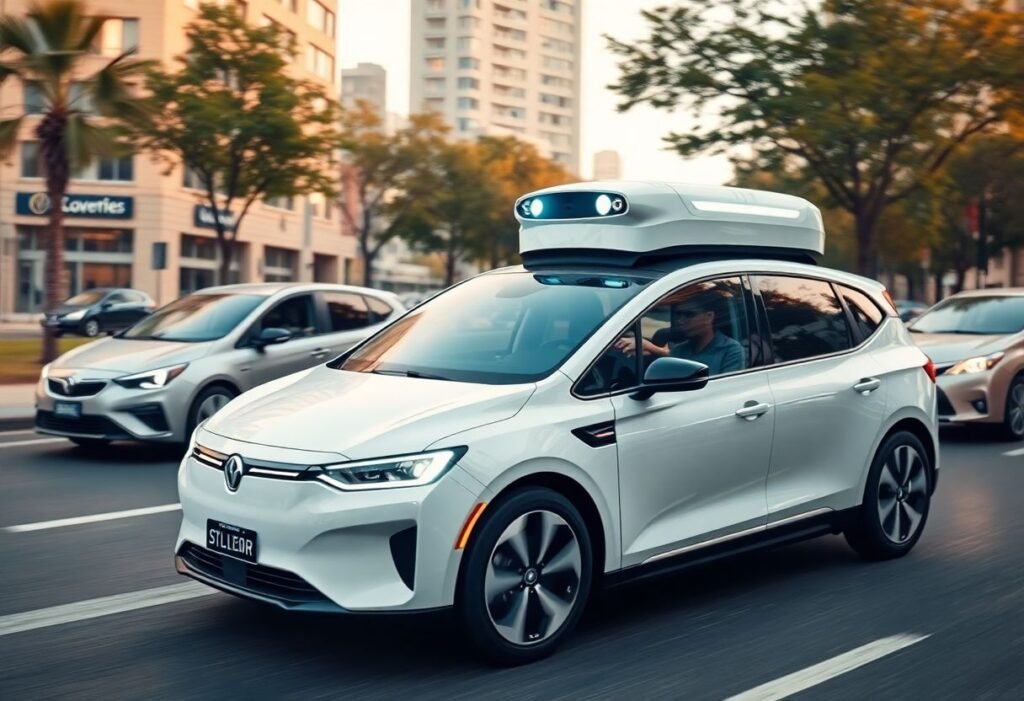The future of autonomous vehicles in personal transportation is pivotal for innovation in the automotive industry and beyond. As technology progresses, the rise of self-driving vehicles promises to revolutionize how we commute, ensuring improved safety, efficiency, and convenience.
Understanding Autonomous Vehicles and Their Impact
Autonomous vehicles, or self-driving cars, represent a groundbreaking technology that blends robotics, artificial intelligence, and advanced sensor systems. These vehicles operate without human intervention, using sophisticated algorithms to analyze their surroundings. The impact of these vehicles extends beyond mere transportation; it involves significant changes in urban planning, environmental sustainability, and individual mobility. With the capacity to reduce accidents due to human error, autonomous vehicles could pave the way for a safer transportation ecosystem.
The Role of Innovation in Advancing Autonomous Technology
Innovation is at the heart of the development and adoption of autonomous vehicles. Major technology companies and automotive manufacturers are investing heavily in research and development to enhance the capabilities of self-driving cars. Breakthroughs in sensors, AI, and machine learning contribute to more reliable systems capable of navigating complex environments. As a result, we are beginning to witness a shift in public perception, where people are becoming more comfortable with the idea of sharing the road with self-driving vehicles.
Challenges Facing Autonomous Vehicles
Despite the remarkable advancements in technology, autonomous vehicles face several challenges before they become ubiquitous. Regulatory hurdles, technological limitations, and public trust are critical factors that need addressing. Governments must establish clear regulations that facilitate the safe testing and deployment of autonomous vehicles. Additionally, ensuring that the technology is foolproof in all driving conditions remains a significant hurdle to full-scale implementation.
Economic Implications of Autonomous Transportation
The advent of autonomous vehicles will undoubtedly reshape the economic landscape of the transportation sector. Jobs in driving industries are likely to evolve, and new opportunities will emerge in vehicle maintenance, software development, and safety protocol implementation. However, there is concern over job displacement for traditional drivers, leading to discussions about re-skilling and up-skilling for the workforce. The shift towards self-driving vehicles could also lead to reduced transportation costs overall, benefiting consumers.
The Environmental Benefits of Autonomous Vehicles
In addition to enhancing personal safety, autonomous vehicles have the potential to significantly impact environmental sustainability. By optimizing driving patterns, self-driving cars can reduce fuel consumption and lower greenhouse gas emissions. Furthermore, when integrated with electric vehicle technology, these vehicles can contribute to a substantial decrease in urban pollution. The smarter design of traffic flow can lead to fewer idle cars and enhanced energy efficiency in transportation.
The Future Outlook for Autonomous Vehicles
The future of autonomous vehicles in personal transportation appears bright, with rapid advancements expected. In the coming years, it is plausible that these vehicles will become integrated into daily life, transforming how we think about travel. Public acceptance will likely grow as innovations continue to demonstrate reliability, safety, and cost-effectiveness. This shift will not only enhance personal mobility but also define the future of our cities and environmental landscapes.
Disclaimer: The insights provided in this article reflect current trends and advancements as of October 2023. Future developments may affect these projections.





















